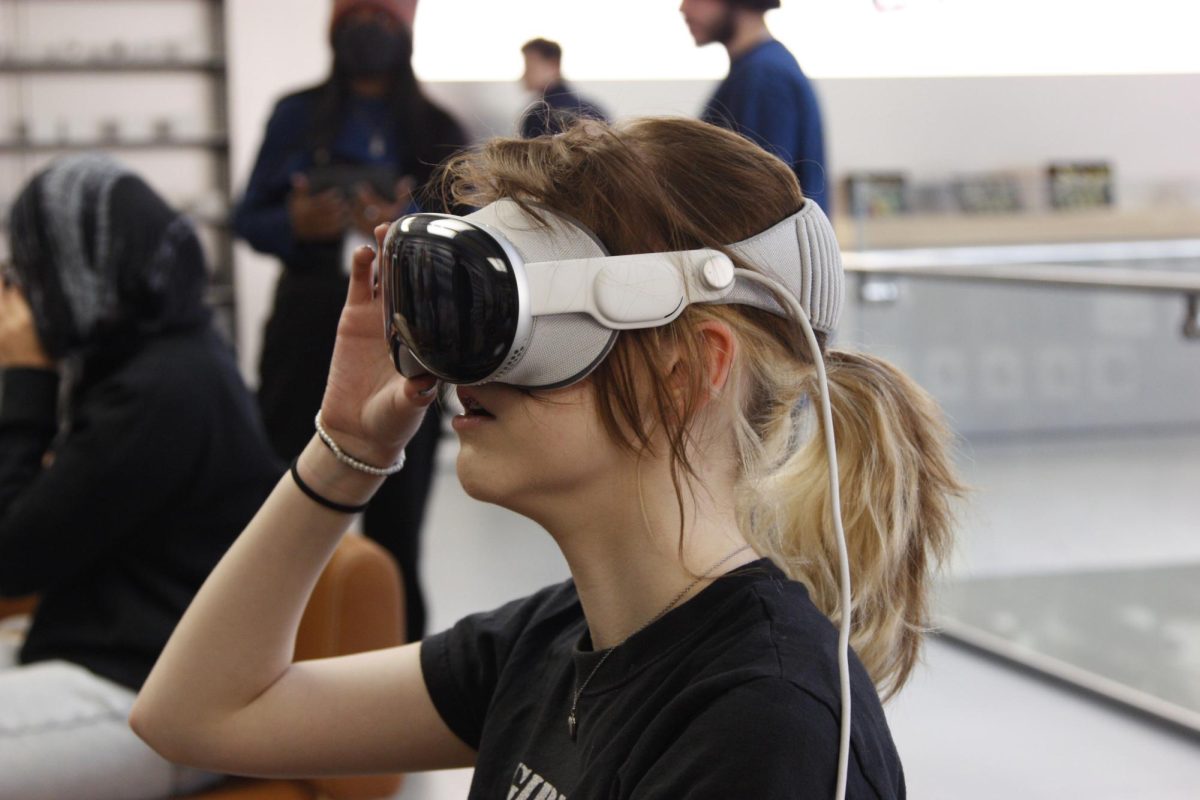In a rapidly evolving world of technology, the new Apple Vision Pro has to be the next major leap forward in technological advancement, igniting both widespread fears of a dystopian society dominated by technology and hopes of a digitally-assisted world. For decades, Apple has dominated the global smartphone market and been highly praised for their technological innovations. The company, however, was also recently involved in a lawsuit for purposefully making older iPhones slower to encourage the purchase of newer models. As technology companies like Apple release more products with negligible upgrades, they promote an unhealthy consumerist lifestyle and diminish innovation.
Apple has always been at the forefront of technological improvement. Apple products’ reputation as luxurious and trendy drives users to upgrade their devices to the latest models. Additionally, Apple advertises their latest products as revolutionary, even if there are no substantial improvements from the previous version.
Boston Latin School history teacher Mr. Patrick Boor, an active Apple consumer, agrees with this sentiment, asserting, “The invention of the iPhone in 2007 was certainly a major technological advancement […] but the new iPhones haven’t seemed to make major advancements.”
Apple’s minimal-upgrade strategy instead emphasizes its accumulation of wealth over genuinely impactful modifications to its technology. Apple’s loyalty to their strict schedule of at least one new version of a previous product per year has hindered their capability of making truly advanced technologies.
Instead of concentrating on improving one product, however, Apple has diversified their line of products, expanding into areas such as smart home speakers with their Apple HomePod. Although this allows the company to build their customer base and brand, critiques about its creativity and uniqueness arise.
Many smaller companies that have already dedicated their attention and resources to a specific product are overshadowed by Apple’s mere presence in the field. This presence encourages customers to buy only within the Apple ecosystem. With the loyalty of customers to Apple’s minimally-upgraded products, the company prioritizes profit, fostering a cycle of consumption.
Once someone purchases an Apple product, it is nearly impossible to switch to other companies. Apple’s ecosystem makes it especially difficult to export data to outside devices, effectively locking all the user’s information within Apple’s systems. This inconvenience discourages the customer from investing in alternative brands.
The Apple Vision Pro is indeed a milestone in technology. Rather than appealing exclusively to gamers, it is marketed primarily for productivity. An Apple employee adds, “With the amount of money Apple has invested in this […] they’re not going to let it fail unless it is not profitable.” However, the Vision Pro is extremely expensive, costing 3,500 dollars, and is still relatively new compared to competitors like Meta or Oculus, which are more affordable and established choices with extremely developed digital platforms. The Apple employee agrees, “[There is a] big barrier of entry […] 3,500 [dollars] is a much bigger price point with uncertainty with what you are going to do with it.”
Similar to their other products, Apple portrays the Vision Pro as essential, life-changing technology undermining the innovations of other companies who aided in pioneering and advancing the virtual reality space. Violet Huang (III), a student who has tried the Vision Pro, highlights, “I found the Vision Pro to be an impressive piece of technology, but not quite revolutionary as Apple markets it to be. While its features provide a unique way to be productive, it’s hard to justify the price point. Why not just buy a computer? It is much cheaper, and honestly more productive than the Vision Pro.” The Apple Vision Pro is more of a luxury item and it is not a necessity for the average consumer.
While Apple is a prominent example of promoting unhealthy consumerism, it is not the only company to adopt similar strategies. Technological advancements in modern-day capitalist societies may offer more opportunities but also push for constant materialism. As consumers, it is essential to assess the true value and impact of the latest technologies.
An additional camera on a smartphone may be alluring, but alternatives like a high-quality Canon camera might offer better functionality without indulging in the consumerist cycle. Individuals must discern if a new product is an authentic innovation and if it is really worth the price.








